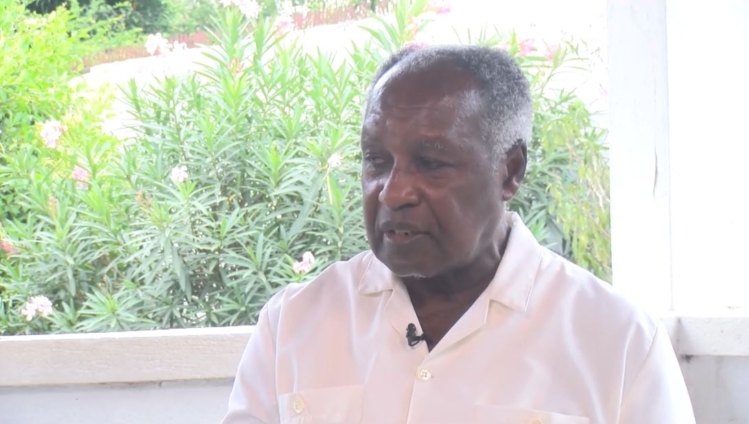Former Vice-Chancellor of the University of Ghana, Prof Ivan Addae Mensah, is worried about the government's approach to improving education in Science, Technology, Engineering and Mathematics (STEM).
The Emeritus Professor believes that building new facilities to accelerate education in these fields is not the panacea to the country’s low percentage of non-grammar-based human resources capacity.
"This is a typical example of how we start schemes just for its novelty without thinking of the implications," he said on JoyNews' AM Show.
The Education Ministry has committed to erecting new structures across the country to encourage the training of students in STEM; this will help address the weak link that had existed since the introduction of the 1987 educational reforms that introduced the junior and senior high schools.
On the back of these, government has already announced the opening of six new STEM schools this year to improve the science to humanities ratio programme.
The schools include Abomosu STEM School, Kpasenkpe STEM School, Bosomtwe Girls STEM school, STEM Centre at Accra Senior High School and TVET School at East Legon.
Education Minister Yaw Adutwum said the government had commenced the development of 20 STEM centres and 10 model STEM Senior High Schools across the country, which were at various stages of completion.
But the former Vice-Chancellor believes though the intent may be valid, government is looking at the whole idea wrongly and not critically thought-through.
"Instead of investing in improving the quality in these schools, we are now going to start news schools from scratch without using the schools that already exist. We are going to build new structures so that we can show people that when we came, we built A, B, C, D schools called STEM schools," Prof Addae Mensah lamented.
The Professor explained that government will be doing the sector a great disservice if it continues to invest resources in additional structures rather than boosting the efficiency of the existing ones.
According to him, the nature of the equipment and consumables needed to run such institutions will make it economically inappropriate to disregard these alternatives.
"Pouring in more money when you cannot even equip those new structures. You may bring in new equipment, but with scientific equipment, a maximum of five years, they will become obsolete, and they have to be replaced. That is where the problem begins," he said.
In his view, though the policy has already been outlined on paper, if its implementation is not tweaked in the direction of quality, the desired results may not be achieved.
"You can call me a naysayer, but I think that if we concentrate on the schools we have now and make them functional and produce quality, we will be doing far better."
Latest Stories
-
GAFOSC in commanding form ahead of decisive UG Corporate League clash
7 minutes -
99% of NPP Council members backed early presidential primary – Justin Kodua
9 minutes -
Ablekuma North collation: Police playing funny games with us – NPP
19 minutes -
Education Ministry orders nationwide audit over poor quality of SHS meals
22 minutes -
Visa delays due to logistical failures by US Postal Service – Ablakwa
23 minutes -
Two suspected robbers Lynched, two arrested in Bosome Freho after fatal attack
27 minutes -
Pan-Africanists strengthen case for reparations from colonial masters
28 minutes -
Gov’t suspends NSA’s portal for posting personnel over ghost names scandal
34 minutes -
Michael Blackson and fiancée Rada Darling welcome son ‘Lil Mikey’
42 minutes -
Ablekuma North Collation: NDC is frustrating the process – Justin Kodua
45 minutes -
Justin Kodua explains why NPP is holding early presidential primary for 2028 election
50 minutes -
Adutwum declares intent to run for NPP 2028 flagbearership race
56 minutes -
Shirley Frimpong-Manso bemoans Ghana’s hype for Tyler Perry’s ‘Straw’
58 minutes -
Two arraigned for alleged illegal gold trade
1 hour -
PUSAG condemns withholding of National Service PIN Codes, demands urgent redress for affected students
1 hour

